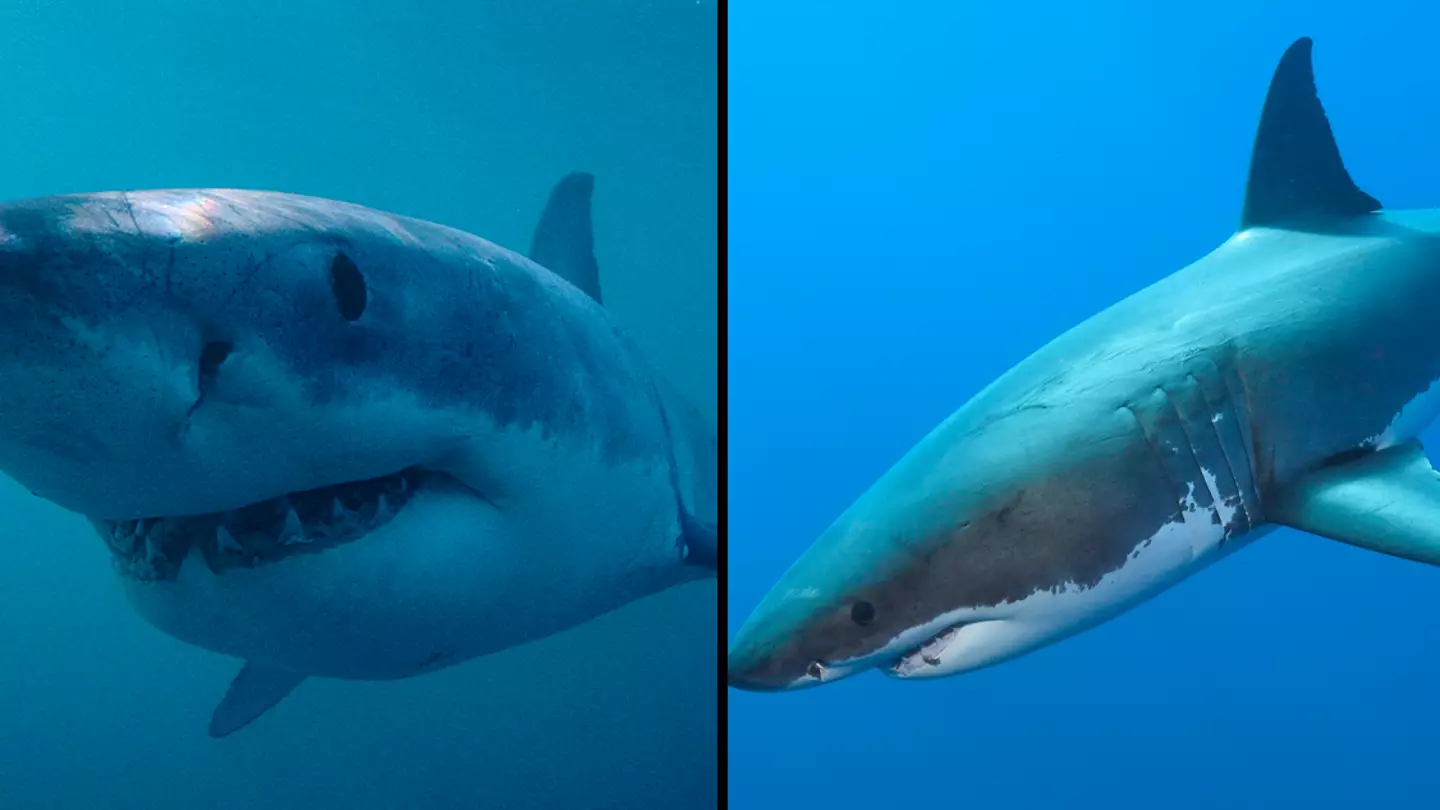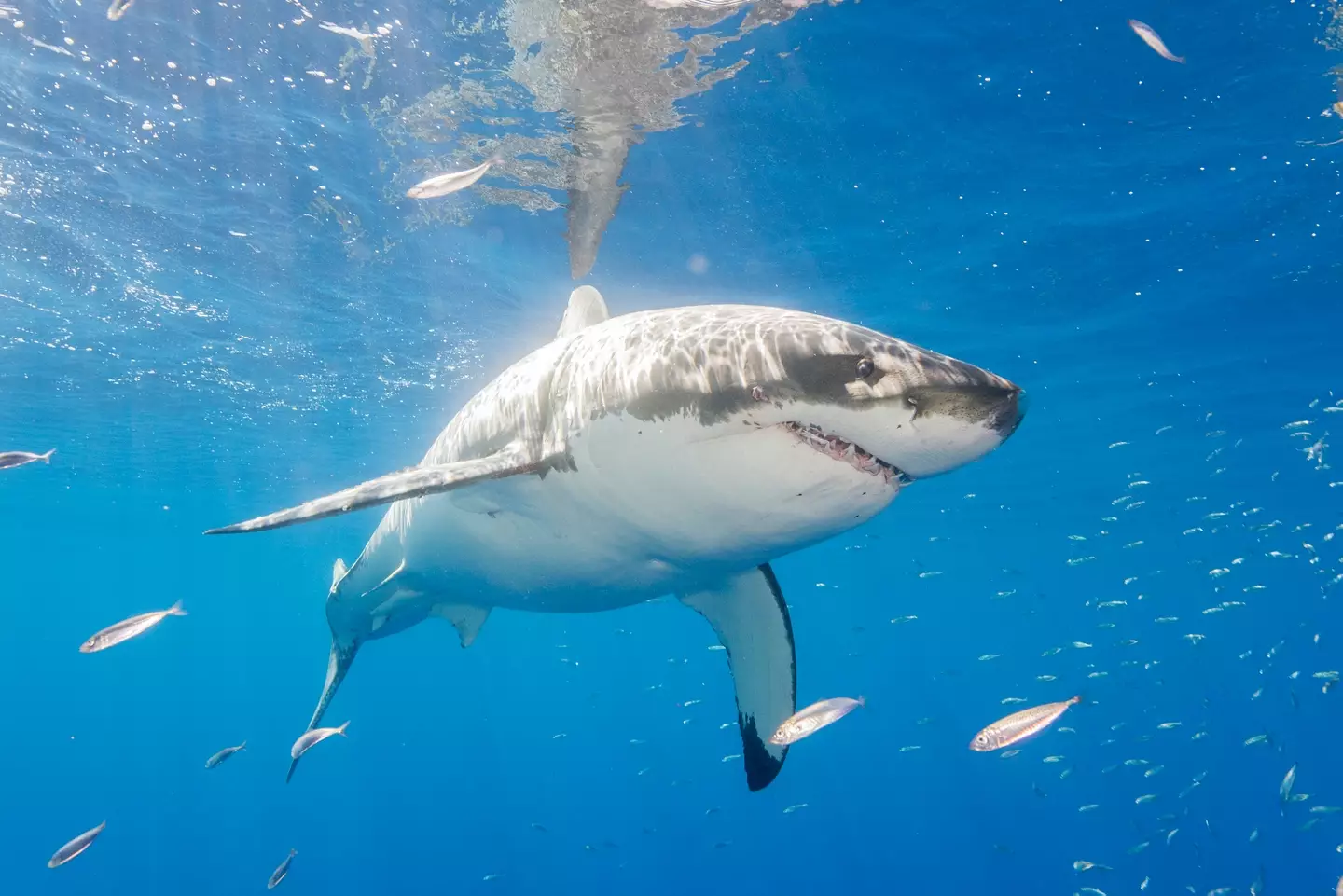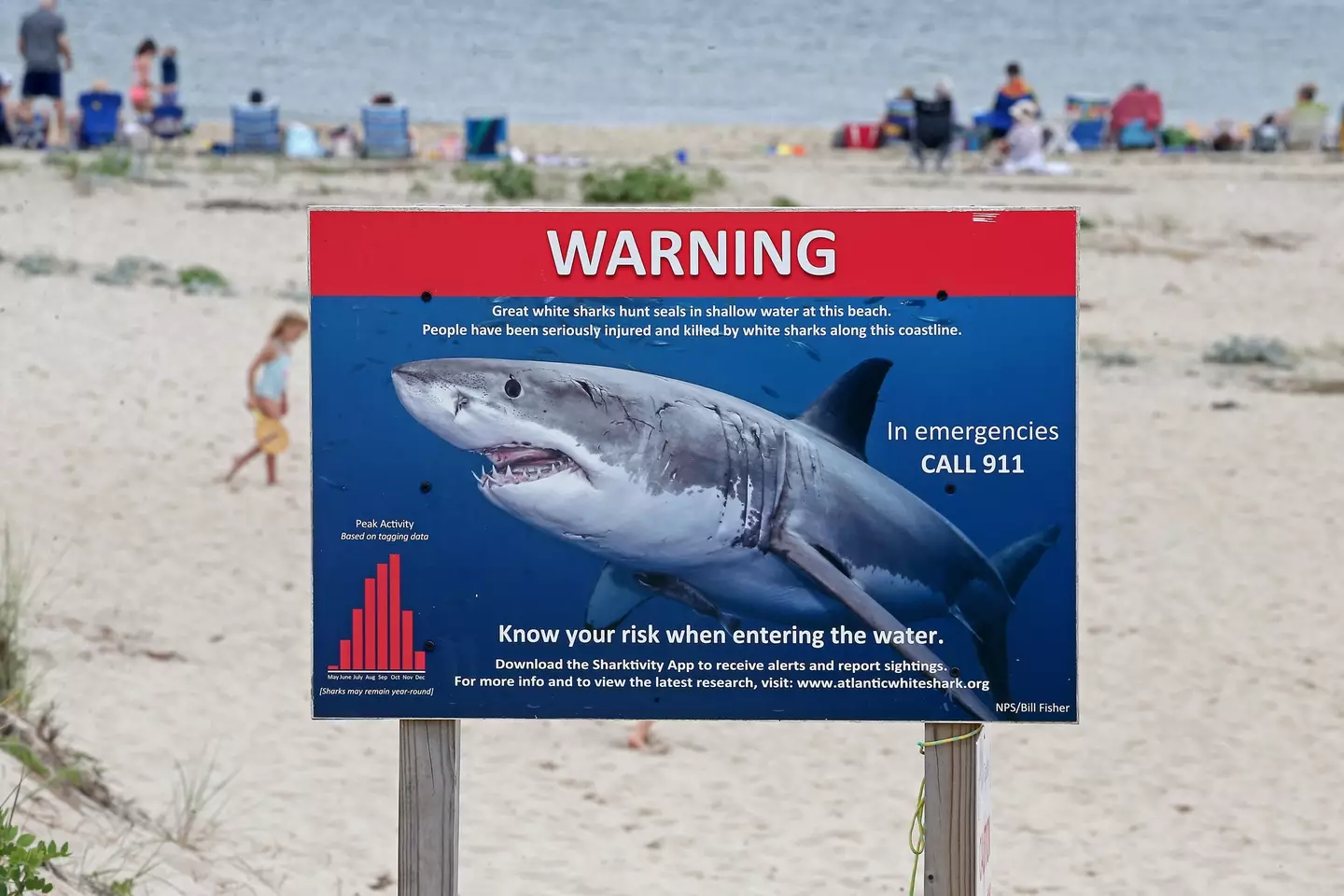
Just when you needed something else to worry about, scientists have said great white sharks could be soon heading for UK waters.
Marine research group, Ocearch, which is tracking them, believes the sharks' migration north every summer suggests the predators could soon head for waters off the Devon, Irish and Cornwall coasts and the shores of northern France.
Its tracking of more than 400 tagged sharks has revealed that in recent years Mediterranean great whites have been regularly swimming north in search of food, like seals.
The founder of the non-profit, Chris Fischer, told The Times yesterday (5 July): "We believe they should be moving up past Brest [France] and Cornwall."
The group will be visiting the UK in 2024 as the firm believes it'll find some toothy visitors in our waters.
Advert
This comes after Cape Cod, a peninsula in Massachusetts, US, has seen an increase in the number of great whites spotted off its coast in the past 50 years due to an abundance of newly government-protected seals - one of the sharks' main food source.
Their presence was virtually zero ahead of the 1970s.

Neighbouring Martha's Vineyard was the filming location for the fictional Amity Island in Stephen Spielberg's 1975 cinematic masterpiece, Jaws.
However, Marine biologist, Gregory Skomal, is sceptical that the predators could reach or thrive in waters around the UK.
Advert
“There’s no documented white sharks off Cornwall.
"They should be there but they are not and we don’t know why," he told the Times.
He added: “I would be surprised if he finds a single shark.”
Ecologist and Dorset-based shark specialist, Georgia Jones, also agrees, explaining the sharks in the Med actually 'got lost'.
“If they were predating our seals we would be seeing evidence of it," she said.
Advert

According to the University of Plymouth, there have been about 100 credible, but unconfirmed, sightings of great whites in the UK over the past 10 years.
The beasts are most commonly found around the coast of North America including California, Hawaii and the Gulf of Mexico, as well as South Africa and Australia.
Experts have previously suggested the sharks could become common off our coasts by 2050, as climate change causes sea temperatures to rise.
Currently, blue and basking sharks are the most common of the 40 different species found in the waters surrounding the UK.
